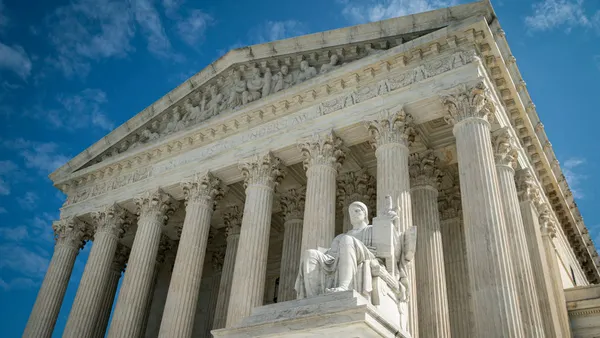The U.S. Equal Employment Opportunity Commission plans to broaden its enforcement efforts to include additional focus on systemic racism and artificial intelligence in the workplace, it said in a Jan. 10 proposal.
The agency’s draft Strategic Enforcement Plan (SEP) for 2023-2027 appeared in the Federal Register, and stakeholders may comment through Feb. 9.
EEOC’s SEP is the culmination of a series of listening sessions that occurred in the summer and early fall of 2022. The first, held Aug. 22 virtually and in Buffalo, New York, dealt largely with systemic racism in the workplace. The second, held virtually Sept. 12, focused on the vulnerability of immigrant workers. The third and final session, held Sept. 22, gave attention to the potential for unregulated AI and technology to perpetuate discrimination.
Subject matter priorities EEOC identified in its SEP include eliminating barriers in recruitment and hiring; protecting vulnerable workers and persons from underserved communities from employment discrimination; addressing selected emerging and developing issues, such as violations of the newly enacted Pregnant Workers Fairness Act; advancing equal pay for all workers; preserving access to the legal system; and preventing and remedying systemic harassment.
While these priorities closely mirror those identified in the last SEP, it is clear the listening sessions and recent political events influenced the new document, showing EEOC is keeping an eye on evolving workforce issues. The document’s executive summary mentions the police killings of George Floyd and Breonna Taylor, the COVID-19 pandemic, and high-profile shootings including those of shoppers and workers in Buffalo in May and those of attendees at an LGBTQ club in Colorado Springs, Colorado, in November.
Within its subject matter priorities, the new SEP points to discriminatory use of automated systems and AI as a hiring barrier. It also broadens its definition of “vulnerable workers” to specifically include LGBTQ and other workers and updates its “emerging issue” priority to include discrimination associated with COVID-19, among other additions.
The SEP establishes the EEOC’s enforcement priorities and is not to be confused with the agency’s Strategic Plan, a higher-level document that explains EEOC’s mission, operations, processes for achieving goals and methods for monitoring progress. The 2022-2026 Strategic Plan, which EEOC sought comment on from Nov. 4 through Dec. 5, is currently being finalized, the agency said.
EEOC’s 2023-2027 SEP, if adopted, will replace its most recent plan, which covered the years 2017-2021.











